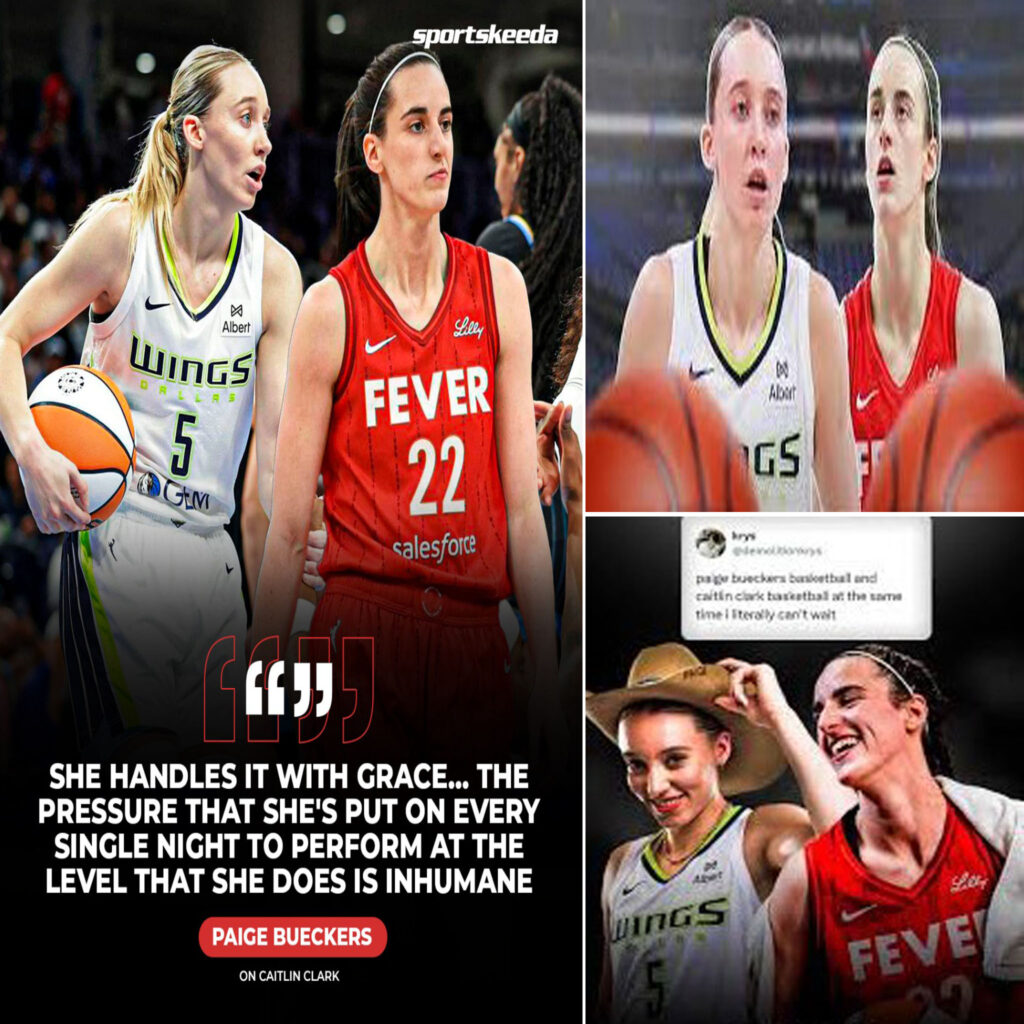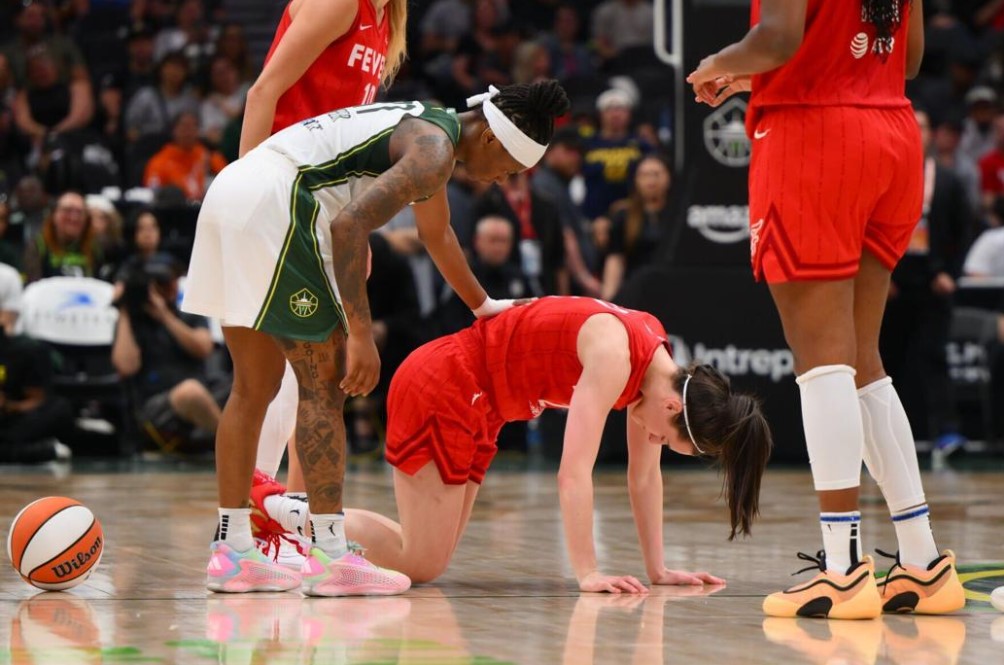Paige Bueckers Admires Caitlin Clark’s Composure Under the Spotlight
In the high-pressure world of professional women’s basketball, where every move is scrutinized and every performance dissected by fans and media alike, maintaining composure under intense spotlight has become one of the most challenging aspects of being a star athlete. The 2025 WNBA season has brought together two generational talents who have captured the attention of basketball enthusiasts worldwide, with Paige Bueckers of the Dallas Wings recently offering heartfelt praise for Indiana Fever’s Caitlin Clark and her remarkable ability to handle unprecedented pressure with grace and dignity.

During a recent interview that has since gone viral across social media platforms, Bueckers opened up about her genuine admiration for Clark’s mental fortitude, specifically highlighting how the former Iowa standout manages to perform at an elite level while dealing with the immense expectations and constant scrutiny that comes with being one of the league’s most recognizable faces. The UConn alumna didn’t mince words when she described Clark’s approach to handling criticism, stating that the way her fellow rookie manages to maintain her composure despite facing what she termed “inhumane” expectations from fans and media demonstrates a level of mental strength that deserves recognition and respect.
The context of Bueckers’ comments becomes even more significant when considering the current landscape of women’s professional basketball, where both players have entered the league as highly anticipated number one overall draft picks, each carrying the weight of transforming their respective franchises while simultaneously elevating the profile of the WNBA as a whole. Clark, in particular, has found herself at the center of intense media attention since her college days, with every game performance analyzed through a microscope and social media reactions often swinging between extreme praise and harsh criticism depending on her statistical output on any given night.
What makes Bueckers’ perspective particularly compelling is her own firsthand experience with similar pressures, having navigated the intense spotlight of college basketball at UConn before making her professional debut with Dallas, where she too faces the constant pressure to live up to enormous expectations while helping to establish herself as one of the league’s emerging superstars. Her acknowledgment that expecting perfection from any athlete is “unfair” speaks to a deeper understanding of the psychological toll that constant scrutiny can take on professional athletes, especially those who are still in the early stages of their careers.

The Dallas Wings guard went on to elaborate on the broader challenges that all WNBA players face in dealing with fan reactions and social media criticism, explaining how she has developed her own coping mechanisms by deliberately limiting her exposure to online commentary and focusing on maintaining what she describes as protecting her “peace and joy” from external negativity. This approach reflects a mature understanding of the mental health aspects of professional sports, where maintaining psychological well-being is just as crucial as physical conditioning for sustained success at the highest level of competition.
Bueckers’ comments also shed light on the evolving nature of sports media and fan engagement in the digital age, where athletes are more accessible than ever before through social media platforms, but this accessibility comes with the double-edged sword of constant exposure to both praise and criticism from millions of followers who feel entitled to express their opinions about every aspect of a player’s performance. Her observation that these external opinions “only affect you if you let them affect you” demonstrates a philosophical approach to handling criticism that many young athletes struggle to develop early in their careers.
The timing of these remarks is particularly noteworthy given that both players’ teams have experienced recent struggles on the court, with the Wings and Fever both dealing with inconsistent performances that have led to increased scrutiny from fans and analysts who had high expectations for both franchises entering the season. This shared experience of navigating team struggles while maintaining individual excellence has likely contributed to Bueckers’ empathetic perspective on Clark’s situation, as both players understand the unique challenge of carrying team expectations while developing their own professional identities.
Furthermore, Bueckers’ praise for Clark extends beyond just her mental toughness to include recognition of her basketball skills and the way she has managed to maintain her distinctive playing style despite the pressure to conform to others’ expectations of how she should perform. This acknowledgment from a peer competitor speaks to the mutual respect that exists between elite athletes who recognize the dedication and sacrifice required to compete at the highest level of professional basketball.
The broader implications of this mutual admiration between two of the league’s brightest young stars extend beyond individual relationships to reflect the evolving culture within the WNBA, where players are increasingly supportive of one another even while competing fiercely on the court. This dynamic creates a positive environment for the league’s continued growth and helps establish role models for younger players who aspire to reach similar levels of success while maintaining their mental health and personal values.
As both Bueckers and Clark continue to develop their professional careers and face the ongoing challenges of performing under intense scrutiny, their ability to support and learn from each other’s experiences demonstrates the maturity and wisdom that will likely serve them well throughout their careers in professional basketball.